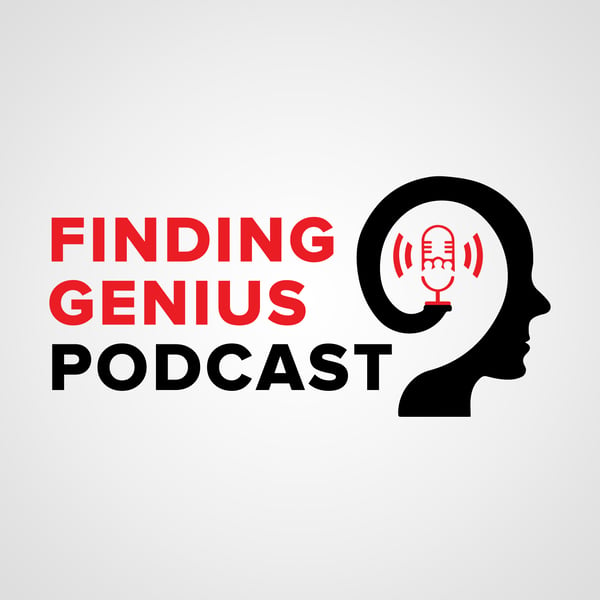Enabling Gut and Planetary Health with Seed
Finding Genius Podcast
Richard Jacobs
4.4 • 1K Ratings
🗓️ 11 April 2021
⏱️ 32 minutes
🧾️ Download transcript
Summary
Microbial sciences are experiencing a "gold rush of research," says Seed co-founder and co-CEO Raja Dhir. He discusses how Seed is a part of that work with a multi-technology approach to all aspects of the microbiome, from gut health to coral reef protection. Listen and learn
- How Seed's biology research takes on microbial activity for the entire body, from the stomach to the scalp;
- How they've expanded their research to environmental issues like coral microbiomes, plastic degradation, soil microbiomes, and even honeybee microbiomes;
- How their products work to reach the center of our immune system without interference from stomach acid; and
- Why their innovations make a difference compared to other techniques, such as their functionally redundant microbial consortia and precision delivery system.
Raja Dhir is a life science entrepreneur who helped co-found Seed along with Ara Katz. The company is a venture-backed microbiome group that's pioneering the application of bacteria for both human and planetary health. Because he leads their R&D, academic collaborations, technology developments, and clinical trial design, he's able to give listeners a relevant and precise look at why their products work and how their research strives to help planetary health as well. He explains how they maintain their high scientific bar as they develop compounds for a variety of issues, including skin and gut treatments.
Unique among microbial science companies, Seed also researches environmental microbiome issues, including how to help coral reefs survive ocean acidification and ways to mitigate effects of neonicotinoids and pathogens on honey bees.
Dhir also brings listeners on a deep dive into their techniques, explaining how they've achieved the 100% release of viable cells into the upper small intestines for their gut microbiome products, which allow the bacteria to be metabolically active. He also helps listeners get a more vivid picture of how their synergistic and complimentary synbiotics work by carefully pairing appropriate prebiotics with probiotics.
Listen in for more about this company's fascinating approach to microbial science.
Transcript
Click on a timestamp to play from that location
| 0:00.0 | Hello, this is Richard Jacobs with the Finding Genius Podcast, now part of the Finding Genius Foundation. |
| 0:05.2 | I have Raja Deere, he's a co-founder and co-seal of Seed Health S-E-E-D. Raja has a |
| 0:11.4 | life scientist entrepreneur, he's co-founder of Seed, as I mentioned, which is a venture-backed |
| 0:15.5 | microbiome company that's pioneering the application of bacteria for both human and planetary health. |
| 0:20.8 | He leads seeds R&D, their academic collaborations, technology development, clinical trial design, |
| 0:26.5 | so Raja, thank you for coming. Absolutely. But what got you interested in the microbiome and |
| 0:31.7 | why did you create Seed? I've always had an interest, I think, in new fields of science, |
| 0:36.8 | new fields of biology. When I was in high school, the genetics revolution was just going on, |
| 0:41.9 | and the human genome being sequenced for the first time, and I remember being so inspired at |
| 0:48.4 | what those types of interdisciplinary pursuits and science really mean, and how new technologies |
| 0:53.8 | can enable rapid data generation at a whole population level at scale, and so obviously my |
| 1:02.2 | interest in unlike the microbiome, which is the bacteria collection of microorganisms |
| 1:07.8 | in and on the human body, the genome isn't something that is very easy or accessible or |
| 1:14.2 | able to be changed, but the microbiome is something which is kind of called your accessory genome, |
| 1:18.8 | right? It contributes a lot of different genes to the metabolism of you as an organism, and so |
| 1:25.2 | when this field first started, I think 2006, was the first study I saw in this field on |
| 1:31.4 | changing, transplanting the microbiome from one animal to another, and their entire body composition, |
| 1:36.4 | phenotype changed. I remember thinking, hey, this is something that's really interesting, and |
| 1:40.4 | I've been tracking the field ever since, and so of course, since then, the fields exploded, |
| 1:44.9 | it's become so interdisciplinary, it's pulled researchers from all these different areas of |
| 1:49.6 | science and medicine and technology and data, and usually when those things happen, it creates a |
| 1:55.6 | very interesting and fertile ground for innovation. So what's unique about what seed does, |
... |
Please login to see the full transcript.
Disclaimer: The podcast and artwork embedded on this page are from Richard Jacobs, and are the property of its owner and not affiliated with or endorsed by Tapesearch.
Generated transcripts are the property of Richard Jacobs and are distributed freely under the Fair Use doctrine. Transcripts generated by Tapesearch are not guaranteed to be accurate.
Copyright © Tapesearch 2025.

